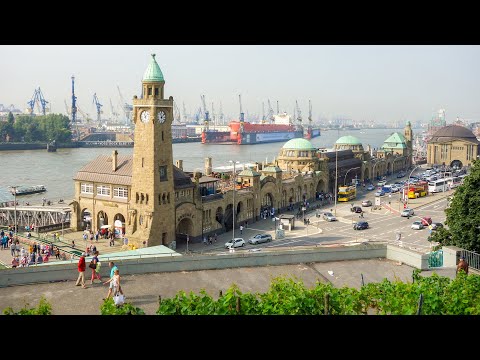
Germany is a country steeped in history, culture, and natural beauty, offering a myriad of experiences for travelers. Among its iconic cities and historic trails, Hamburg and the Luther Trail stand out as must-visit destinations for those looking to delve into Germany’s rich heritage and explore the profound impact of the Protestant Reformation.
## Hamburg: A Gateway to Northern Germany
Hamburg, Germany’s second-largest city, is often referred to as the “Gateway to the World”, thanks in part to its bustling port – one of the busiest in Europe. This dynamic city combines a thriving cultural scene, storied history, and modern attractions, making it a compelling stop for any traveler.
### Historical Highlights
A walk through Hamburg’s historic Speicherstadt, the largest warehouse district in the world built on timber-pile foundations and interlaced with canals, is like stepping back into the city’s trading past. Nearby, the striking Elbphilharmonie concert hall exemplifies modern architectural brilliance and offers stunning views of the harbor.
### Cultural Insights
Hamburg’s dedication to culture is evident in its numerous museums and galleries. The Kunsthalle Hamburg houses an extensive collection of European art from the Middle Ages to contemporary pieces. For maritime enthusiasts, a visit to the International Maritime Museum provides deep insights into sea travel’s evolution over centuries.
### Gastronomic Delights
The city also offers an exciting culinary scene ranging from traditional German eateries serving Fischbrötchen (fish sandwiches) to high-end dining experiences along with lively beer gardens that invite visitors to relax after a day of exploration.
## The Luther Trail: A Journey Through Reformation History
The Luther Trail (or Lutherweg) invites travelers on a spiritual and historical journey through Saxony-Anhalt, Thuringia, Saxony—a region central to Martin Luther’s life and the Protestant Reformation. This trail stretches over 1,000 kilometers connecting various significant sites that played pivotal roles in this transformative period.
### Key Destinations
– **Wittenberg**: Often considered the heart of the Reformation, visitors can explore Schlosskirche (Castle Church) where Luther famously nailed his 95 Theses challenging church practices.
– **Eisenach**: Home to Wartburg Castle where Luther translated the New Testament into German while in hiding. This act significantly impacted religious belief by making scripture accessible to common people.
– **Leipzig**: Known for its St. Thomas Church where Johann Sebastian Bach worked as a cantor and which also has deep connections with Martin Luther’s sermons delivered here during critical times.
### Spiritual Reflections
The trail not only offers historical insights but also presents opportunities for spiritual reflection amidst serene landscapes – whether it’s walking through tranquil forests or contemplative moments in ancient churches along this sacred route.
### Cultural Events
Numerous festivals celebrate Martin Luther’s legacy annually along this trail including music performances inspired by ecclesiastical reforms he initiated or medieval fairs that recreate scenes from 16th-century daily life providing immersive experiences into this pivotal era of European history.
## Combining Both Worlds
For travelers planning their itinerary around Germany, combining both Hamburg’s urban charm with a pilgrimage on the Luther Trail provides an enriching contrast – from experiencing bustling city life filled with maritime adventures in Hamburg to embarking on a meditative journey across towns that shaped religious thought across Europe via The Luther Trail.
Whether you’re drawn by historical curiosity or seeking deeper cultural connections within your travels; visiting Hamburg coupled with walking parts of The Luther Trail offers an unparalleled experience into exploring Germany’s past while engaging directly with moments that have shaped much more than just national narratives but also global history.
